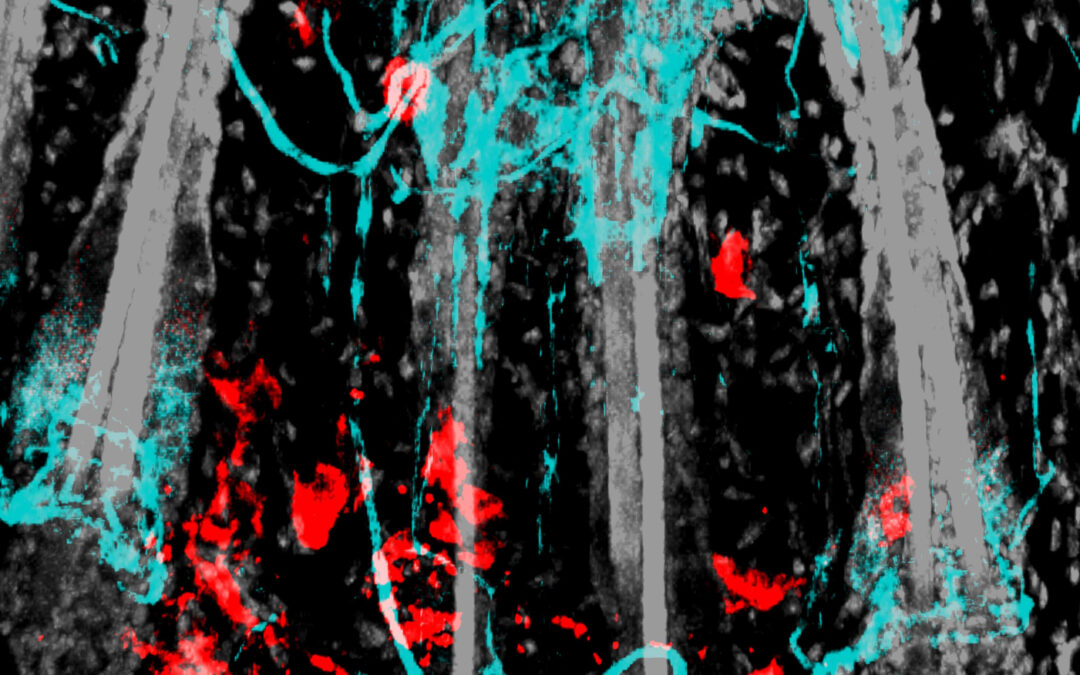Authors: Serhan N, Abdullah NS, Gheziel N, Loste A, Ekren R, Labit E, Gonzalez AA, Oliva G, Tarot P, Petitfils C, Payros G, D’Avino P, Voisin A, Tinsley HFG, Gentek R, Brosseau C, Bodinier M, Reber L, Val P, Akdis CA, Mitamura Y, Andiappan AK, Chan JKY, Ginhoux F, François A, Cénac N, Basso L, Gaudenzio N.
Prenatal stress (PS), repeated exposure to aversive situations during pregnancy, is thought to disturb infant homeostasis. Paediatric eczema appears soon after birth at sites under mechanical strain. Epidemiology links PS to higher eczema risk, but mechanisms remain unclear. We show that eczema originates from in-utero dysregulation of neuroimmune circuits, triggered by maternal hypothalamic–pituitary–adrenal fluctuations. Offspring of stressed dams exhibit altered mast cells and sensory neurons, developing eczema from mild friction. PS transiently changes amniotic corticosterone, reprogramming mast cells and adjacent neurons. Normalizing maternal corticosterone or depleting Mcpt5+ mast cells during gestation prevents immune dysregulation and protects offspring. Thus, early-onset eczema arises from stress-induced fetal immune alterations via maternal glucocorticoid fluctuations.

